The financial pros and cons to owning an electric car
They’re more expensive to buy but cheaper to run. Check out our guide to the pros and cons of owning a battery-powered vehicle.
Motoring News
Don't miss out on the headlines from Motoring News. Followed categories will be added to My News.
Electric cars are surging ahead in popularity. More expensive to buy but cheaper to own than conventional models, there are positive and negative elements to charging forward with battery power.
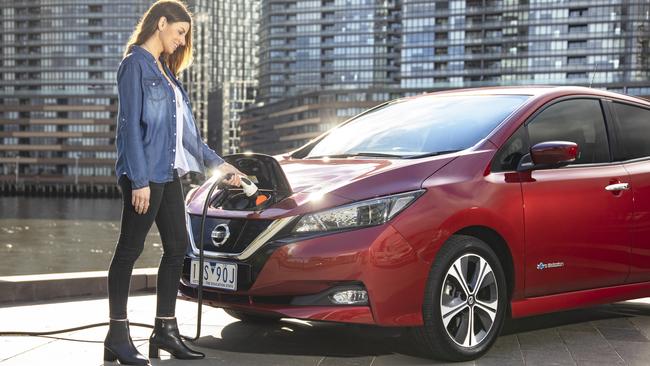
Purchase costs:
Electric cars cost more to buy than regular models.
If you look at cars that are available with a choice of petrol or electric power, the premium is about $25,000 for models such as the MG ZS which starts from $22,990 drive-away as a petrol car, or about $47,000 drive-away with battery power.
It’s a similar case for Hyundai’s Kona, which kicks off at about $30,500 drive-away in petrol trim, or about $57,500 for the Kona Electric.
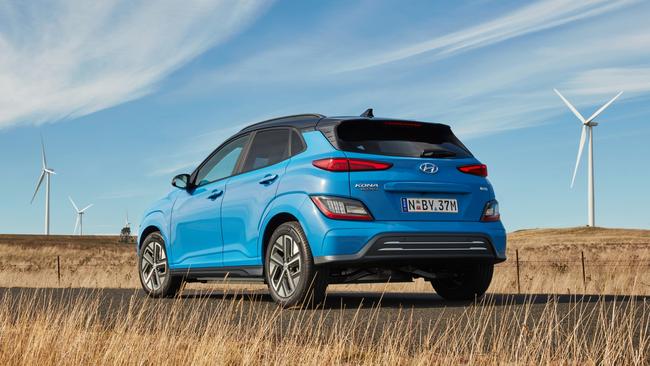
Australia’s most popular electric sedan is the Tesla Model 3 (about $67,000 drive-away), and its Tesla Model Y spinoff is the best-selling electric SUV (about $72,000 drive-away).
That’s a fair wedge more than popular hybrid machines such as the Toyota Camry sedan (about $39,000 drive-away) and RAV4 SUV (about $45,000 drive-away).
But there are some financial incentives to purchasing electric cars, including subsidised finance with lower interest rates, as well as lucrative fringe benefits tax exemptions that make EVs more competitive to lease.
Second-hand options:
There aren’t many second-hand electric cars for folks who can’t afford to spend almost $50,000 on a new one
Of the 160,000-odd used vehicles listed on Carsales today, just over 1000 are electric.
Only five of them cost less than $20,000.
For that money you’ll get a 10-year-old Nissan Leaf with around 100,000 kilometres on the clock – and no manufacturer warranty.
Some of those cars will only charge to about 70 per cent of their original capacity, which could result in a usable range of less than 100km. Fixing that isn’t cheap.
Nissan has a battery exchange program for the Leaf that will supply and fit a new 24kWh battery pack into the car for about $10,000. Bigger batteries cost more – the 54.3kWh battery in an electric Lexus UX costs more than $43,000 plus labour and GST. But battery tech will get cheaper with time, and electric cars sold in larger numbers may also bring costs down.
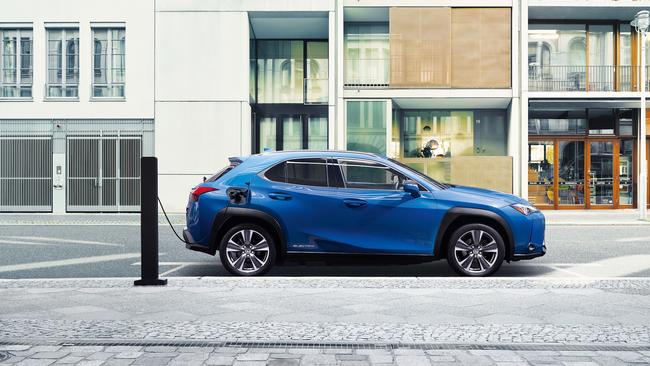
Charging at home
Electric cars can be cheap to run. Folks with good solar energy setups at home can drive for free, and there are plenty of people who regularly top up their cars at fee-free public charging spots.
Most EVs allow you to manage charging times using an app or special software inside the car to take advantage of peak and off-peak electric times.
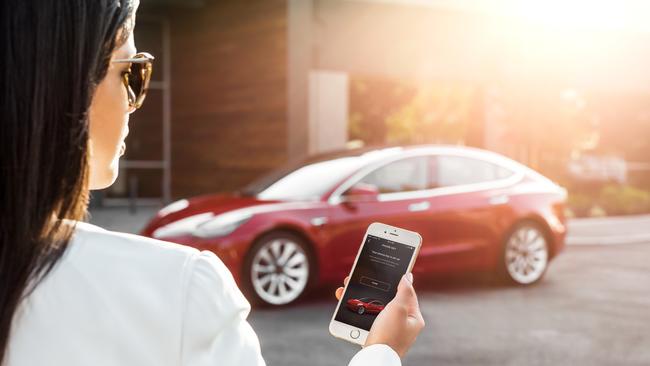
While you can plug an EV into the same power point as a toaster, it’s more efficient to install a home wall charger for $2500 or so – though costs can ramp up significantly if you live in a multi-dwelling complex.
A home battery such as the Tesla Powerwall allows you to store solar energy during the day to feed into cars when parked overnight, though it costs about $18,000 before you consider the cost of solar panels.
Even if you don’t have a solar setup, charging a car using regular home electricity is cheaper than driving with petrol.
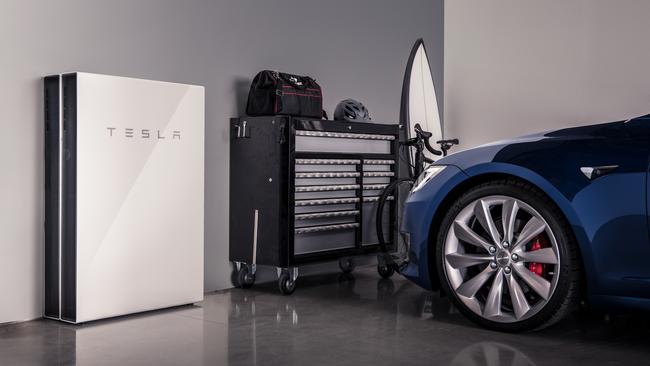
Folks who travel an average of 15,000 kilometres a year, paying an average price of about 35c per kiloWatt hour for energy, will pay an average of about $17 per week to charge a medium-sized electric car.
Owners of an equivalent petrol model pay at least double that. The Mazda6 sedan costs about $36 per week for the same mileage, using 7L/100km of unleaded bought for $1.80 per litre.
Tripping out
Many electric car owners charge at home, rarely paying a premium for rapid charging on the road.
On the odd occasion that a 1000km road trip is required, an owner of a Tesla Model 3 could start with 500km of range and add 500km with two stops to add 250km of range.
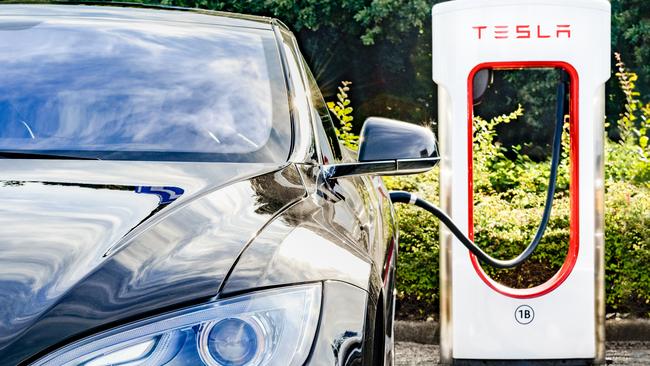
Those charging stops, adding 40kWh to drive 250km, cost roughly $24 each at a retail price 60c per kilowatt hour, or about double what you pay for power at home. That means a Tesla owner could start with a full battery and pay around $50 to finish their trip.
But that’s still cheaper than a petrol family sedan such as the Mazda 6, which needs to burn at least 70 litres of fuel (worth $126 at $1.80 per litre) to complete the same journey.
At your service
Electric cars are impressive in the service department. Mechanically simpler than petrol equivalents, they require fewer parts, less fluid and less workshop time to stay in shape.
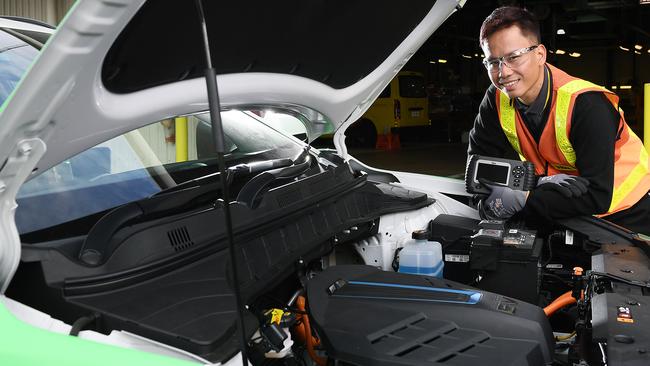
Hyundai’s petrol Kona costs $957 to service for three years, almost twice as much as the $540 charge for a Kona Electric.
It’s a similar case at Kia, where the five-seat Sportage averages out at $509 per year for seven years of servicing, while the electric Kia EV6 costs just $226 per year.
Rubbery figures
Tyres for electric cars are more expensive.
Often made using special rubber compounds with low rolling resistance to maximise range, electric car tyres frequently have a higher weight rating to accommodate the mass of a battery.
The seven tyres suitable for Kia EV6’s work out at an average of $500 per corner at Jax Tyres, while the nine options for Kia’s Sportage are $200 cheaper at $298 per wheel – a solid saving at replacement time.
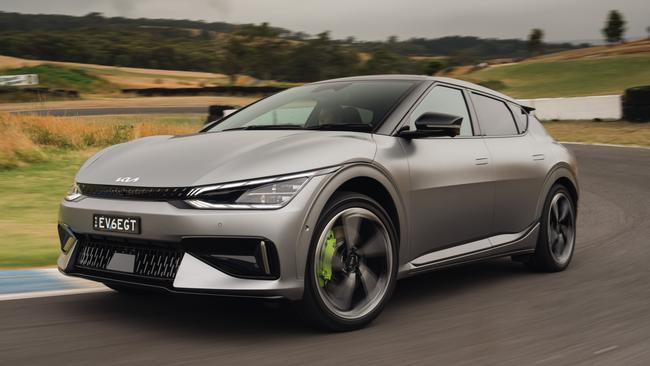
Folks who buy the range-topping electric Porsche Taycan Turbo S electric sports sedan aren’t short of a quid – it costs about $380,000 drive-away. But even they will wince at tyres that cost up to $1100 per corner.
Insurance
EV owners also pay higher premiums than many petrol models, in part because electric cars tend to be faster and more expensive than conventional cars.
Quotes from three leading insurers in Youi, Budget Direct and NRMA Insurance showed the Tesla Model Y costs an average of $2335 per year for a 35-year-old male driver, with a clean driving record, living in a major city.
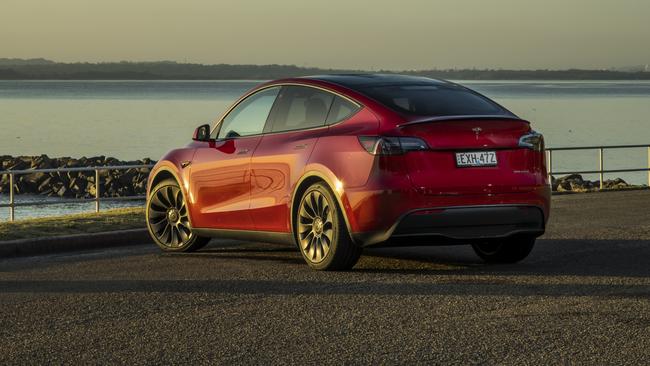
That’s well more than the $1581 average for a Toyota RAV4 Hybrid.
Kia’s Sportage works out an average of $1395 per annum to insure, well less than the $2191 of the Kia EV6.
Older electric cars are much more expensive.
Powerful versions of the five-year old Tesla Model S cost more than $10,000 per year – around double the cost of range-topping sports cars such as the latest BMW M3.
Repair costs
Tesla insurance costs are high because the company has a history of making cars that are difficult to repair compared with normal vehicles. The problem isn’t the battery or electric motors – any crash severe enough to destroy an electric car’s battery is likely to be deemed a write-off.
But fender-benders are a different matter.
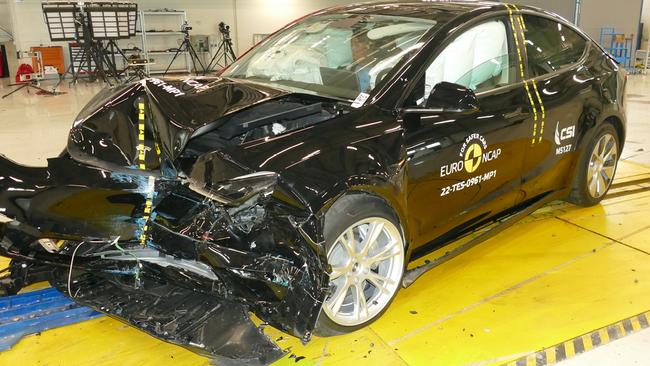
Tesla founder Elon Musk told reporters in January that the brand is working to “minimise the cost of repairing a Tesla if it’s in a collision”.
“It’s remarkable how small changes in the design of the bumper (and) providing spare parts needed for collision repair have an enormous effect on the repair cost,” he said.
“Most accidents are actually small — a broken fender or scratched side of the car.”
Registration
Road infrastructure is paid for with a special tax on fuel – 42.3 cents per litre that equates to more than $25 for every 60 litre tank of fuel. Because electric cars don’t use fuel, Victoria charges a special levy for zero and low emissions vehicles that works out at 2.6 cents per kilometre – or about $350 in additional registration fees for a 13,500 kilometre year on the road.
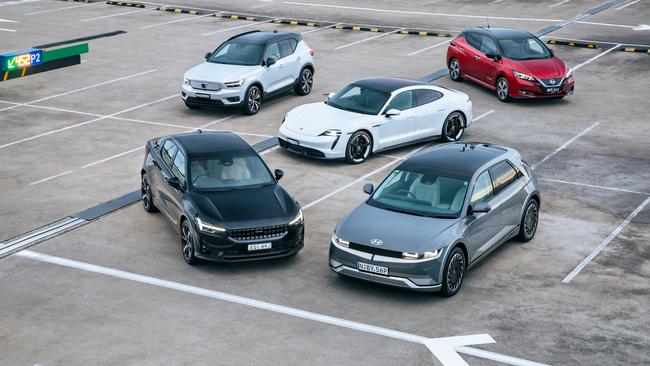
NSW and Western Australia will adopt a similar approach from 2027. South Australia attempted to introduce a road user fee for electric cars but abandoned plans following industry backlash. Other states have not laid out concrete plans either way.


